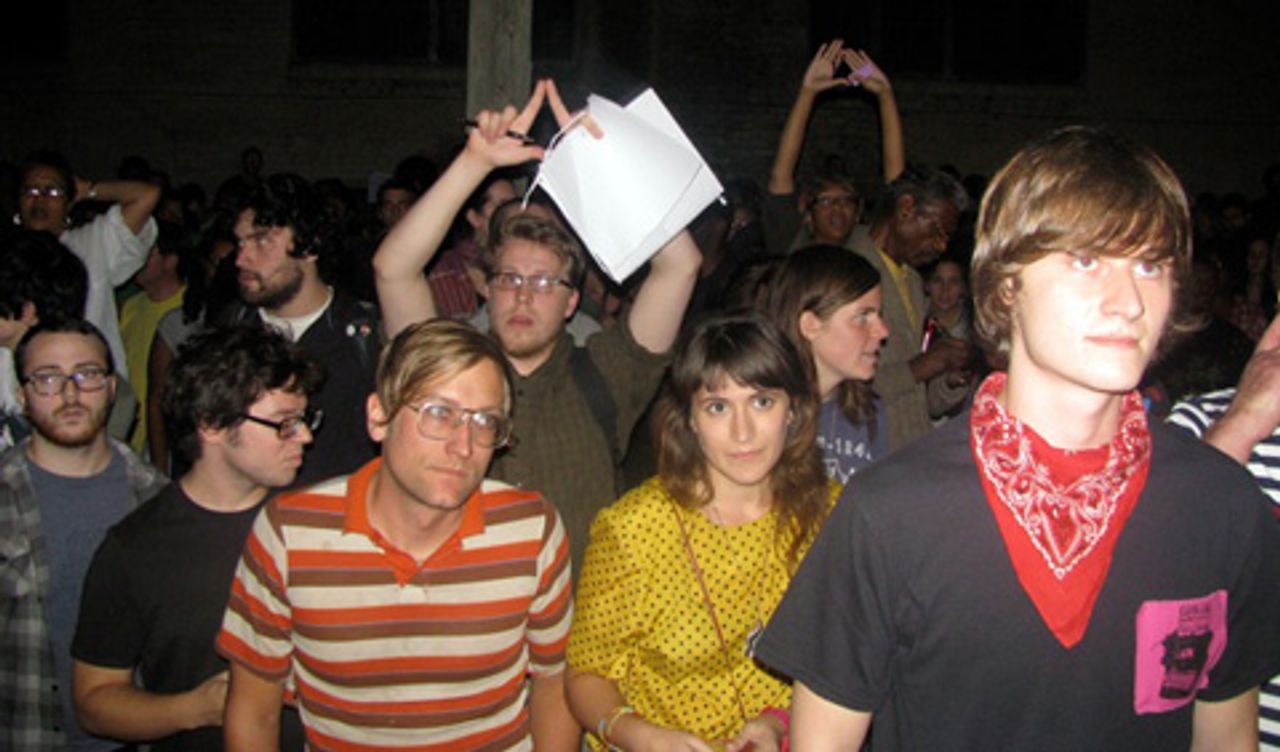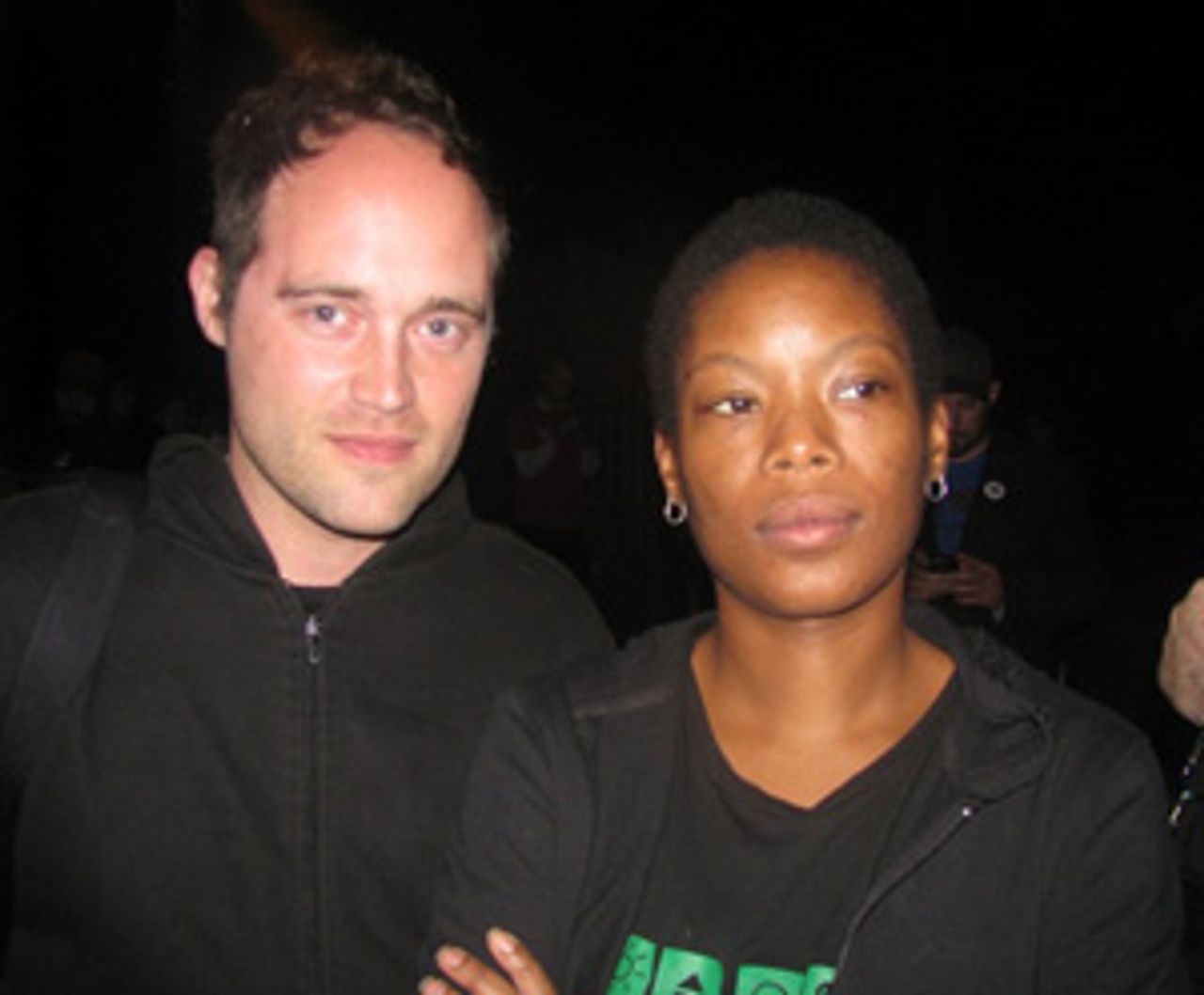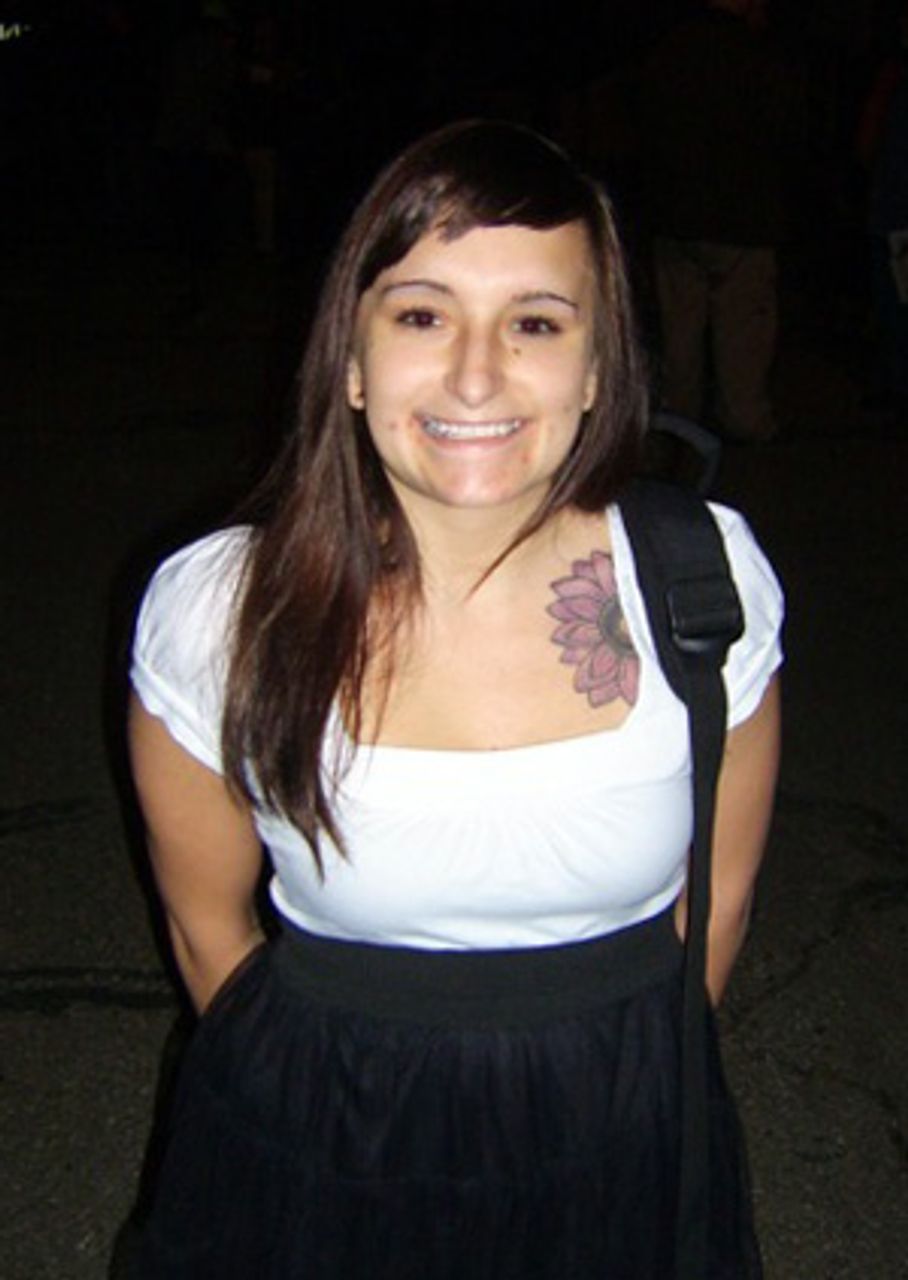 A section of the crowd in Detroit
A section of the crowd in DetroitTwo to three hundred people gathered in a Detroit church Monday evening to make plans to launch Occupy Detroit protests in solidarity with the anti-Wall Street protests that were initiated in New York and have spread across the country.
The mostly youthful crowd in the “general assembly” included college students and employed and unemployed young workers along with teachers and other sections of the working class. For the majority this was likely their first political experience.
Participants voted to hold a march and occupy a public park in downtown Detroit on Friday, October 14.
One of the poorest big cities in America, Detroit has been ravaged by decades of deindustrialization, perpetrated by the corporate and financial elite. An entire generation has come of age with few prospects for a decent future.
“I want to be somewhere in five years but the way things are going I won’t be,” Donitha Copeland, an IT worker, told the World Socialist Web Site.
 Anderson and Donitha
Anderson and Donitha“They’re closing things and taking things away,” she continued. “The Detroit Science Center is closing and so are a number of libraries. Life is being taken away. You can’t be educated; they’re cutting off welfare, so people can’t eat,” she said, referring to the recent decision by the state legislature to cut off cash assistance to 41,000 state residents, including 30,000 children. “At the same time those on the top are doing better than ever.”
Anderson Walworth, a musician from a small town outside of Lansing, said, “I came to Detroit because a lot is going on in the arts. The factory closures and wage cuts are just business as usual. Detroit is so littered with closed factories that people just see it as part of the landscape now.” Anderson added that he did not look to the unions as the means of defending the working class because “they don’t look after workers either.”
While those in attendance were motivated by a deep indignation towards the looting of society by the wealthy one percent and the domination of the political system by Wall Street, the organizers of the event sought to prevent any discussion of the political issues confronting the movement.
At the beginning of the meeting speakers on the podium announced that participants had to limit their comments to 30-seconds. If they had differing political viewpoints, the organizers said, they “should keep it to themselves.” Everything was done to limit debate to when and where the protests should take place and avoid any discussion of strategy and politics.
Supporters of the Socialist Equality Party and the International Students for Social Equality spoke from the floor urging the widest political discussion over what strategy was needed to mobilize the working class and prevent the movement from being diverted behind Obama and the Democrats and suffocated.
“There has never been a significant social movement—whether the American Revolution, the Civil War, the building of the industrial unions, the socialist or the civil rights movements—where the issues of strategy and perspective were not deeply debated,” said a SEP supporter. “Only in this way is it possible to develop a movement free from the control of the Democrats—who defend Wall Street as much as the Republicans—and mobilize the working class, the only social force capable of breaking the grip of the financial aristocracy.”
Others at the event also spoke with the WSWS. Rich Miller, a teacher from West Bloomfield, said, “People think things are good because we are in a better-off suburban school district. But I just got a paycheck for $10. We’ve been forced to take huge pay cuts. I think we need to get rid of Governor Rick Snyder.”
 Kristina Zak
Kristina ZakTwenty-year-old Detroit native Kristina Zak said she attended the assembly because “revolutionaries founded this country and the fact that they’re trying to put a stop to these protests is awful.” Kristina said she wants to go to school to study nutrition and medicine, but is “terrified to go to the bank and ask for a loan because I know I won’t be able to pay it back.”
She said the capitalist system made it hard for people to live decent lives. “Poor people can’t afford healthy food and are forced to shop at Walmart and McDonald’s to feed their families.
“We don’t need the top 1 percent. They don’t do anything. Their job is to steal our money. We need to bring back communities. We all have something to contribute in changing the world for the better.”
